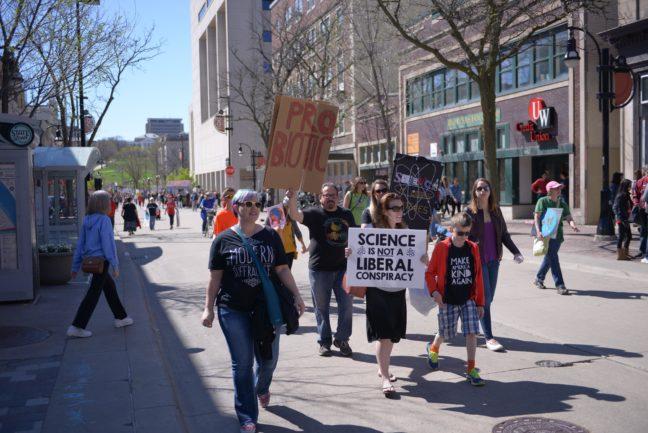Over the past several weeks, Mother Nature has dominated the headlines. First, it was Hurricane Harvey dumping record rainfall. Then Hurricane Irma, maintaining a record 185 mph maximum wind for 37 hours and wiping out islands in the Caribbean, destroying Cuba and forcing a third of Florida’s population to pack up and leave their home to watch its fury pass by. And now, Hurricane Maria is paving her name in the history books by destroying what’s left of Puerto Rico, the Virgin Islands and the Caribbean.
As families and communities begin the long, dreadful and unknown road to recovery and rebuilding, society still turns the page with hesitation. We might donate — which I encourage all to do — say a prayer and sadly, that’s about it. We continue living life as if nothing really changed—maybe panic for gas.
Then, predictably, comes the firestorm from the media over climate change. Whether it’s making fun of climate change deniers on Real Time with Bill Maher, Louder with Crowder taking time to talk with a “real” climate scientist, CNN or Fox News assembling round table discussions, or useless Facebook or Twitter rants, society misses the point — meaning both sides of the aisle.
Why is having the discussion about climate change more important than actually doing something about it? Every time the media’s agenda spins onto climate change, liberals end up bickering and complaining endlessly about how climate change is real. It’s a noble cause, but what good does it do trying to convince segments of society — who are already demonized and made fun of — that climate change is real? Franky, who cares.
Whether or not climate change is going to end the world in whatever year Al Gore says it’s going to, or climate change is just a government conspiracy, why is taking care of the planet— our home — second in the debate and not the center of discussion? I ask liberals first because you all are so gung-ho about climate change. Additionally, calling all conservatives: Taking care of the planet is not an evil idea.
Would it not be smart to go out and actually reduce your carbon footprint before lecturing everyone else that climate changes is Armageddon? Al Gore and Co. certainly have not.
If we truly wanted to challenge climate change, we would take personal responsibility — government is not the answer. We all know that we should recycle, reduce water and energy outputs and ride a bike to work. That message kinda worked.
Here’s an idea that has more benefits than one, reduce your meat consumption. If you think the world is going to fall apart due to climate change, don’t eat meat.
According to the World Resources Institute, when compared to an average 2009 American diet, they found that if our diets reduced meat, it could cut your emission by half — it all depends on the diet and your meat intake. The study looked at about 500 different diets and how they could affect the environment.
It’s clear, the meat industry is detrimental to the environment. I get that cutting meat out of your diet is extremely tough. In that case, don’t eat red meat. Beef alone is the worst. Per the same study, if cattle were a nation, it would be the world’s third largest greenhouse gas emitter, behind only China and the United States. Beef also uses 33 percent of all water for animal production and 25 percent of Earth’s land — excluding Antarctica — is for pastures.
‘There is no planet B’: Marchers rally to end climate change
Not only would we as a society become “greener,” eating a less-meat-diet is healthier than a heavy-meat-diet, and it could bring an end to world hunger while allowing land to be used to grow legumes. It’s a win-win. To give another perspective, according to The Center For Sustainable Systems at the University of Michigan, on average, U.S. household food consumption emits 8.1 metric tons of CO2 each year. The production of food accounts for 83 percent of emissions, while its transportation accounts for 11 percent.
You could even live your life exactly as a massive waster would, but reduce your meat-diet, and you’re already doing something significant for personal health, aiding others, and the fight against climate change.
It is a very frank and honest discussion if the cultural and economic aspects of society are not taken in consideration. Wisconsin depends on the dairy industry for its culture and economic resources as does Texas with cattle. It’s a tough and sensitive issue, and it opens an entire different debate. But it’s an actual option on the table, unlike what liberals, conservatives and media propose on climate change.
We’ve got this climate change debate all wrong. Yes, we need to be actively cleaning up the mess we’ve made, and personal responsibility is the only answer.
Steven Jotterand ([email protected]) is a junior studying journalism.














